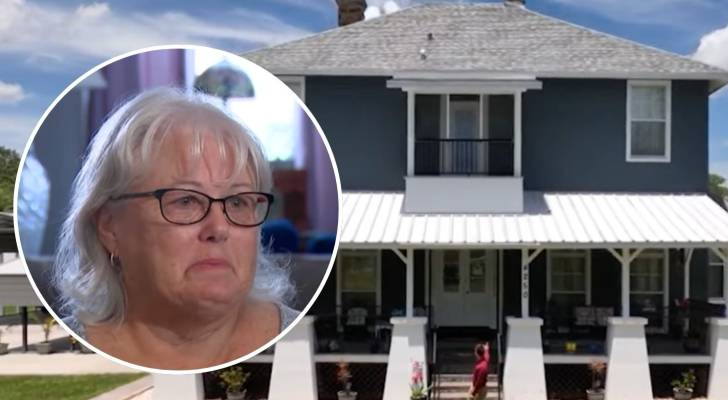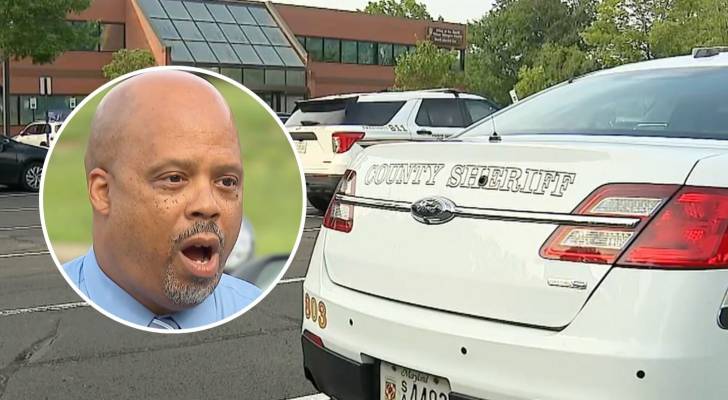A ‘dark cloud’ is now hanging over the cruise ship industry as complaints of crimes aboard ships have risen in recent years — here’s how to stay safe while setting sail


Complaints of crimes and missing person reports on cruises that dock at U.S. ports have surged in recent years, fueling what one security expert calls a “dark cloud” over an industry eager to protect its reputation. Department of Transportation figures show 48 alleged incidents between Jan. 1 and March 30 of this year: 23 reports […]
Disgraced ex-CEO of addiction treatment provider facing charges for $149M fraud now has detox center running out of his California home — neighbors say it’s ‘despicable’ it’s been allowed


Sovereign Health Group, once one of the country’s largest addiction treatment providers, shut down in disgrace in 2018 — but former CEO Tonmoy Sharma appears to be back in business. As NBC4 Los Angeles reports, a detox and mental health facility called Dana Shores Recovery has opened in a home Sharma owns in San Juan […]
‘The legacy ends with me’: Recently widowed Florida woman’s 1800s home may be torn down for a new highway. Here’s how the state could use eminent domain to destroy her house


A 19th century home in Sanford, Florida that survived hurricanes and a nearly two-mile move to its current spot may soon be bulldozed to make room for a highway. Don’t miss I’m 49 years old and have nothing saved for retirement — what should I do? Don’t panic. Here are 6 of the easiest ways […]
‘It’s a big win’: Florida’s Ron DeSantis signs 2 new laws to stop squatters from taking over hotels, restaurants and businesses — but is squatting really that big of an issue in the US?
Florida Governor Ron DeSantis recently signed two new laws protecting commercial property owners from squatters. These laws are part of the state’s broader effort to crack down on unauthorized occupancy and strengthen private property rights. Don’t miss I’m 49 years old and have nothing saved for retirement — what should I do? Don’t panic. Here […]
I’m 31, locked in a great mortgage rate of 4.75 % when I bought my home 2 years ago, paying $1,000/month, all-in. Now, my boyfriend wants to buy a place together. Should I buy a second home?


A 31-year-old homeowner has found herself in a common modern-day dilemma: Should she stay put in a home she owns (with a great mortgage rate) or take the next step with her partner and buy a second home together? Understandable if she didn’t want to sell — she’s owned her home for less than two […]
Maryland homeowner fighting to reclaim his property after a family of squatters moved in using fake Instagram scam — but they’re demanding $5K to leave. What’s behind this troubling trend


A Maryland homeowner, who asked to only be identified by his first name, Pete, says squatters are demanding $5,000 to vacate his home after gaining access to the property through a fraudulent Instagram rental scheme. ABC 7 News reports that two adults and two children had moved in, changed the locks and gave police a […]
This rookie Arizona official refused to accept a utility provider’s math during a public meeting — and made them own up to their mistake. Why holding companies to account matters


A freshman Arizona Corporation Commissioner refused to back down in a public meeting with one of the state’s largest utilities — and got them to come clean about their mistake. Commissioner René Lopez, who holds a degree in nuclear engineering and is a former Chandler City Council member, raised concerns about one of Arizona Public […]
47% of Florida households don’t make enough to cover the basics — and a growing number of them are 65 and up. Why seniors in the Sunshine State are struggling on a ‘survival budget’


A new report from the United Way’s ALICE project reveals a troubling 47% of Florida households don’t earn enough to cover basic living expenses. ALICE stands for “asset-limited, income-constrained and employed” and refers to households that are above the poverty line but earn less than what the organization says is needed to afford the basics […]
Maryland police warn scammers are now using the names of real deputies to pressure people into handing over cash — here’s how to spot the scheme and save yourself from being scammed


A new scam is hitting Prince George’s County in Maryland and it’s more convincing than most. Residents are receiving alarming phone calls from someone claiming to be with the sheriff’s department. The caller warns them of an outstanding warrant for their arrest and then says they can resolve the matter — for a fee. The […]
This Chicago couple was locked out of their home for a month after a strange woman moved in her family, pet dog — and they nearly had to take the squatter to court to get their home back


Marcia and Carlton Lee’s month‑long property nightmare on Chicago’s South Side is finally over. The couple have reclaimed their vacant house — one they’re trying to sell — after police arrested and removed a stranger who moved in with her family, with paperwork to suggest she owned it. "I knew the ID was fake," Marcia […]
